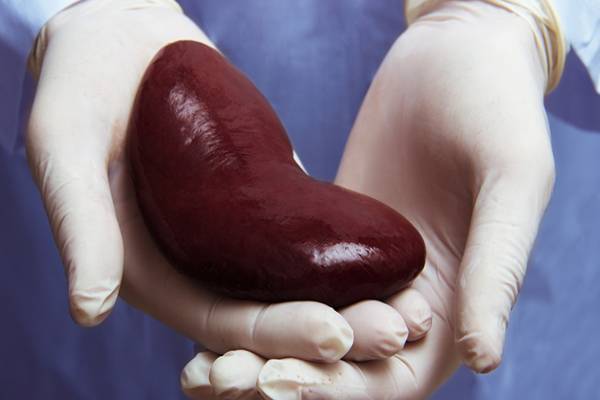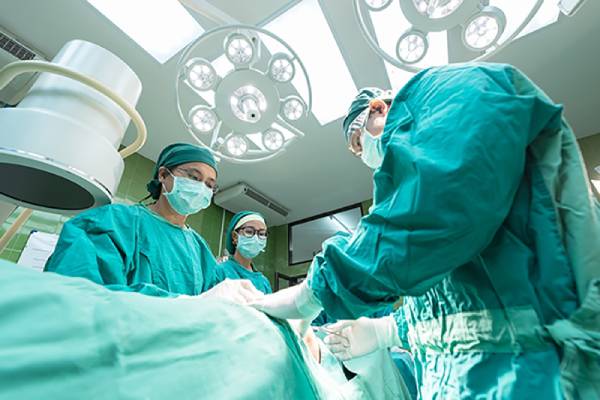Table of Contents
What steps are needed before a kidney transplant?
You should see a kidney transplant center if your doctor diagnoses a kidney transplant. You can even choose a kidney transplant center yourself or go to one of the suggested centers on your insurance company’s list of kidney transplant service providers. In any case, the choice is yours.

The process of evaluation of the kidney transplant recipient
After selecting and finding a kidney transplant center, your condition will be checked to see if you are eligible for a kidney transplant. People who visit a kidney transplant center to assess the conditions of kidney transplantation must meet the following requirements:
- Having adequate health for surgery and lifelong use of medication after surgery
- Absence of any disease that interferes with the success of kidney transplantation.
- Taking medications according to the instructions of the kidney transplant team
The review and evaluation process may take several days. Items included in this review include:
Full physical examination
- Imaging tests such as CT scans and MRI
- Blood tests
- Psychological evaluation
- Tests that the doctor determines
After evaluating and reviewing all of the above, the kidney transplant team will inform you of the results of the assessment and tell you whether you are eligible for a kidney transplant. If you are not admitted to a kidney transplant center, you can visit other centers and find out about their conditions. If you are admitted to one of the kidney transplant centers, you will be tested before the transplant to determine if all the donations are right for you or if you need another kidney.
Tests that determine whether a donated kidney is suitable for you to include:
Blood type:
The best option is to receive a kidney from someone whose blood type matches you. Kidney transplantation with incompatible blood groups is also possible. But to reduce the risk of kidney transplant rejection, medical measures must be taken before and after the transplant.
These are known as incompatible kidney transplants.
Texture type:
If your blood type matches the donor, you will need to have the next test, which is tissue typing or antigen typing.
By this experiment, genetic markers are compared, which increases the shelf-life of the kidney after transplantation.
Crossmatch:
The latest comparative test involves mixing the blood sample of the donor and the recipient. This test shows the reaction of antibodies in the recipient’s blood to the donor’s genes.
If the test results are negative, it means that the genes are compatible with each other and there is no possibility that the recipient’s body will reject the kidney.
Although a kidney transplant with a positive test result will be possible, pre-and post-transplant medical procedures are needed to reduce the risk of the recipient genes reacting to the donor. Other factors that the transplant team will consider to find the most suitable transplant for you include age, kidney size, and exposure to infection.
A kidney transplant from a living person
If a kidney donor is not found from a living person, it is possible to wait for the deceased to find the deceased’s donated kidney.
Family members can often be among the living kidney donors, but kidney transplants from unrelated people such as friends and colleagues are also possible.
Renal Pair Donation
Pair donation is another type of kidney donation that is used if the donor organ is incompatible with the transplant recipient or for other reasons does not match. If the kidney donor donates the kidney to someone compatible with him/her, then you receive a compatible kidney from the donor nominated by the recipient. In certain cases, there may be more than two pairs of donors and recipients who are in contact with a living kidney donor and form a donation chain in which multiple recipients benefit from the donated kidney.
Kidney transplant waiting list
If you don’t find a living donor, your name will be on the waiting list for all deceased donors, but since the number of people on the waiting list exceeds the number of donated kidneys, the waiting list continues to increase.
The period you may have to wait to find all of the deceased donations usually takes several years./ Kidney transplantation in Iran

Who can do a kidney transplant under what conditions?
Kidney patients of all ages, from children to the elderly, can have a kidney transplant. People who are healthy enough to have kidney transplant surgery and also do not have cancer or infection are good options for kidney transplantation.
Individuals who are eligible for a kidney transplant are also psychologically and socially screened to ensure that the transplant conditions are appropriate.
If there is a problem or if the disease is diagnosed, the transplant will be corrected and treated before surgery.
Body health before kidney transplantation
Strive to stay healthy before receiving a kidney transplant. Having a healthy kidney is very helpful for kidney transplantation, and to accept the transplant, proper physical fitness will make it easier for pre-and post-transplant patients, and recovery will be faster.
Several things you can do for your health before a transplant:
- Take your medication according to your doctor’s instructions.
- Have a proper diet.
- Do not smoke, consult a counselor or doctor if you have problems quitting.
- Have healthy activities including adequate rest and spend time with family and friends.
What to expect after kidney transplant surgery
- You will spend a few days in the hospital after a kidney transplant to have your condition checked for signs and possible complications. The function of your kidneys is the same as your kidneys and defecation.
But this sometimes takes a few days and you may need temporary dialysis to get the kidneys working and functioning properly. The recovery time around the incision site of kidney transplant surgery will feel a bit of pain, which is normal.
Most people can do other activities for a month after a kidney transplant.
Avoid lifting heavy objects and strenuous exercise after surgery to heal wounds.
- After you are discharged, have frequent checkups for a few weeks to check your kidney function carefully and make sure your body rejects the new kidney. You may need to take a blood test several times a week and adjust your medication according to the current conditions.
- After kidney transplantation, immunosuppressive drugs (anti-kidney rejection drugs) will help you prevent the body from rejecting the new kidney. Other medications, such as antibiotics, also help prevent infection after a transplant.
It should be noted that to get the best results from a kidney transplant, you should refer to a valid center. Moj Aramesh Amitis Health Tourism Company is ready to provide kidney transplantation services from the beginning to the end and will accompany you with the presence of experts in receiving the ideal result.
Diet after kidney transplantation
You may change your diet after a kidney transplant. Because it will help a lot in better kidney function and health.
If your kidney transplant team has a nutritionist, they can help you get the right diet.
Some of the medications you take after a kidney transplant may cause weight gain, which can be resolved by having a proper diet and exercise, reducing the risk of heart disease or high blood pressure.
Recommendations that a nutritionist may have for the diet include:
- Eat five servings of fruits and vegetables a day
Do not drink water from some fruits, such as grapefruit, due to its effect on immunosuppressive drugs.
Get enough fiber in your diet
Drink low-fat milk or substitute other low-fat dairy products
- Eat lean meat, chicken, and fish
Maintain a low-salt, low-fat diet
Drink enough water a day and prevent dehydration
Exercising after kidney transplantation
After kidney transplantation, exercise and physical activities should be a regular part of everyday activities to improve overall and mental health.
Regular exercise also helps to increase strength and energy levels, achieve ideal weight, reduce stress, and prevent common complications after kidney transplantation such as high blood pressure and cholesterol. After a kidney transplant, you should walk as far as you can. Or exercise 30 days a week for 30 minutes. Cycling, swimming, walking, and strength training can help you live a healthy and active life after a transplant. But remember to consult your transplant team and specialist doctor before you start exercising.
Sexual desire after kidney transplant
People who are dissatisfied with their sexual activity due to kidney disease also improve their sexual desire as they begin to recover after transplantation.
In addition, their fertility will increase. Men who have had a kidney transplant will have healthy children, and women will have successful pregnancies.
But be sure to consult your doctor when deciding whether to get pregnant.
The success rate of kidney transplantation
If your new kidney fails after a while, dialysis can be resumed or even a second transplant can be performed.
But if you plan to stop your treatment, you can consult your doctor to take medication to relieve your symptoms, which depends on your current health, ability to resist kidney transplant surgery, and maintain quality of life.
What can be done if the body tries to retrace the kidney?
After a kidney transplant, your body may suddenly try to reject the kidney. A stage of kidney rejection may show no symptoms, so regular blood tests are very important to check kidney function. Symptoms of kidney rejection that you may experience include fever, decreased urination, swelling, weight gain, and kidney pain.
Sometimes, even if you have taken all necessary measures, kidney transplantation may occur and the body will not accept a transplant.
But even if kidney transplant rejection occurs, there are many treatments available to maintain the kidney transplant.
If you have any symptoms of kidney transplant rejection, contact your kidney transplant team immediately.
Anti-rejection drugs for kidney transplantation
The body normally fights something that is not part of it, called the immune system.
Therefore, to avoid the risk of kidney rejection by the body, you should take medications to make the immune system less active and prevent kidney transplant rejection.
The use of immunosuppressive drugs should continue as long as the kidney is healthy and functioning well.
Written by: Sh. Khazaei
Translated by: N. Rahimifar




